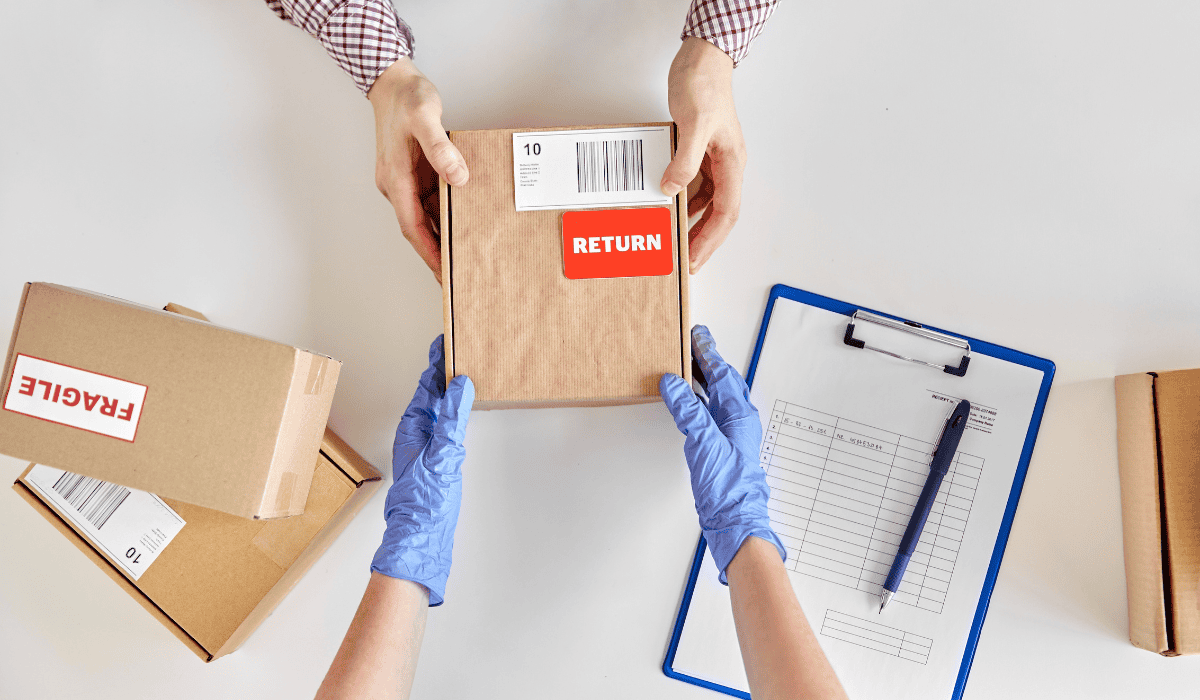
©Syda Productions via Canva.com
Should More Retailers Be Accepting Third-Party Returns?
A university study finds that partnerships involving physical stores accepting returns from other retailers or brands “can be a win-win.”
The study from professors at Carnegie Mellon University and the University of Washington (UW) was recently published in Management Science.
Researchers constructed a model with an online retailer and a store retailer in which customers had several options for buying and returning goods. The study compared the expected profit of the retailers before and after a return partnership was formed and identified when both sides benefitted from the partnership.
Among the study’s findings:
- Retailers accepting returns benefitted from having more traffic in their stores.
- Retailers or brands enabling returns to be processed by third-party stores were able to shift returns to a more cost-effective channel. Collecting and shipping multiple returned items from a physical store is less costly than individual mail-in returns.
- Return partnerships can occur with no direct financial transaction between the two retailers because of how the partnership affects consumer behavior. Such partnerships can also work between retailers offering similar as well as differentiated products.
One caveat was that online sellers with lenient return policies are “best poised to benefit from return partnerships” as those with stricter policies (e.g., high restocking fees) can lead to complications.
Researchers also said sellers of similar products run the risk of driving excessive returns. The study stated, “It limits the incentive of an online retailer when the added convenience of an offline return induces more returns of online purchases. Thus, we caution that with limited differentiation in product offerings, store visits should not be too convenient for a partnership to form.”
Only a few retailers accept returns from other stores.
Amazon is best known for its partnerships that enable free online returns with no box, tape, or label needed inside Kohl’s and Staples locations. It also accepts free online returns at its owned stores (Amazon Fresh, Amazon Go, or Whole Foods Market) and UPS locations.
Nordstrom Local, Nordstrom’s pint-sized urban hubs supporting online pickup and returns as well as personal styling services, helps customers ship returns from other stores. If the retailer doesn’t offer free returns, Nordstrom charges a shipping fee based on package weight, dimensions, and destination. There are seven Nordstrom Locals in Los Angeles and Manhattan.
Staples, Petco, Ulta Beauty, Cost Plus World Market, and Giant Eagle all accept returns from merchants that have partnered with Happy Returns, which UPS acquired last November. The deal made Happy Returns drop-offs also possible at 12,000 locations. Participating Happy Returns’ merchants, including Levi’s, Everlane, Revolve, and Gymshark, pay a minimal fee per returned item.
In announcing the Happy Returns’ acquisition last October, Carol Tome, UPS’ CEO, said retailers estimate that between 20% and 30% of all online orders are returned, and it costs an average of $33 to process each return. Tome said, “We’re going to offer consolidated returns for our customers, which will reduce their handling costs, actually improve our delivery density.”
Discussion Questions
Should significantly more retailers be open to accepting returns from and allowing returns to third-party retailers?
Do returns from complementary or differentiated products to the third-party retailer work better?
What other conditions support “win-win” return partnerships?
